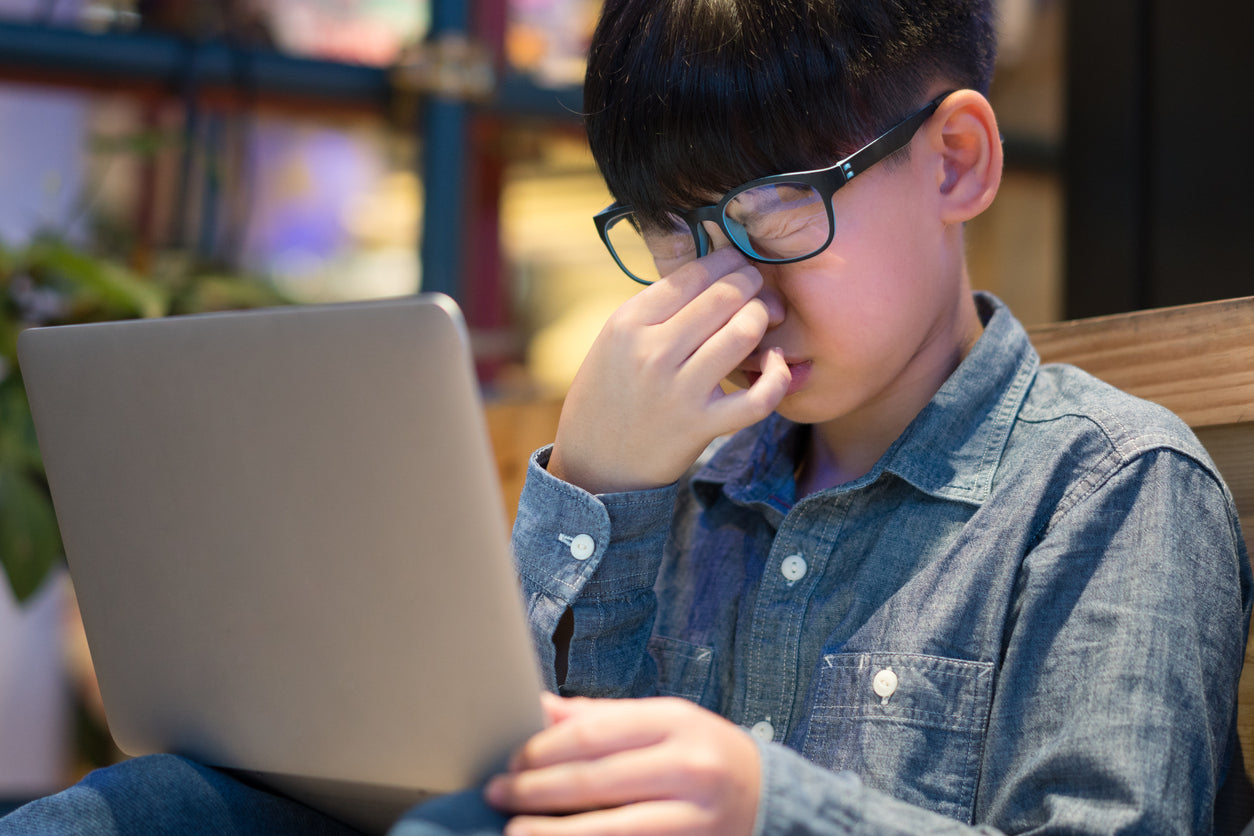Have you ever looked up after an Instagram scrolling session or Netflix binge and thought “wow, my eyes hurt”?
We all know that screens are well and truly a part of modern life, but the impacts they have on our eyes can be disastrous, especially for kids.
Vision problems can negatively impact a child’s development, with the potential to affect their education, self-confidence and social skills.
Screens aren’t going anywhere any time soon, so it’s now more important than ever to take a closer look at how they might be affecting your child’s vision.
Impacts of screens on children’s eyes
Eye strain: one of the most common effects of too much screen time is eye strain. This can include headaches, blurred vision, tiredness, neck pain, and dry and itchy eyes. Eye strain is caused by focussing on screens for a long period of time.
Premature eye ageing: our screens emit blue light, which can cause premature ageing of the eyes. While it might not be so apparent when kids are young, continued overexposure to the blue light screens emit can cause macular degeneration and even blindness later in life.
Short sightedness: Some studies have found that there could be a link between screen usage and short sightedness in children. The results found that heavy mobile phone use can increase the risk of short-sightedness by 30%, but this risk soars to 80% when combined with the use of a computer.

How can this affect my child’s development?
Screen induced vision issues can affect many different areas of a child’s life, particularly their educational and social development.
Conditions such as short sightedness can make it difficult for kids to see the whiteboard in class. Not only does this make learning a challenge but can also cause headaches and further eye strain, making doing their homework a literal pain.
Kids are still learning how to read facial expressions when socialising, and problems with vision can make these cues harder to distinguish. This might mean your child mistakes a look of anger with one of amusement, causing them to respond in the wrong way. These innocent misunderstandings can lead to arguments and affect your child's social confidence.
How can I protect my child’s eye health?
Thankfully there are a few things you can do to lessen the negative impacts screens can have on your child’s eyes.
Regular eye check-ups
Making sure your child gets their eyes checked by an optometrist regularly is a great way to assess their overall eye health and pick up on any subtle changes that could be affecting their vision.
This means that some eye issues have a chance to be addressed before they get any worse.
Head outside
A study had shown that kids who spend an hour outside every day can reduce their chances of developing short sightedness by over 14%.
When kids are outdoors their eyes are forced to focus on objects that are further away, giving their eye muscles a chance to relax after intense focus on screens or in the classroom. Between 60-80 minutes of outdoor play is recommended by eye doctors to promote good eye health and reduce the risk of developing near sightedness.
Take breaks
The 20-20-20 method is a great way to break up intense periods of studying. Every 20 minutes look 20 feet away for 20 seconds.
Breaking up screen activities with non-screen activities is not only a great way to rest their eyes, but also encourages children to pursue other interests and activities, as well as keep active.
Screens are an unavoidable part of modern life with the potential to harm the eyes if we aren’t careful.
Making sure kids have a balanced relationship with their screens, spending some time outdoors and getting their eyes checked regularly can go a long way in ensuring their vision is as protected as possible.

Share:
Feature Focus: Fitness
Developing Digital Literacy Skills Can Help Kids Stay Safe Online